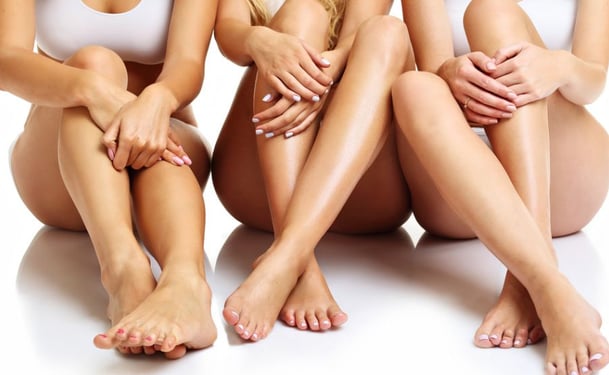Varicose veins are swollen, twisted and sometimes painful veins seen under the surface of the skin. Usually, they occur in legs; however, they may occur in other parts of the body. Although varicose vein may be only a cosmetic concern, some people may have annoying symptoms accompanied such as aching, swelling or pain. Sometimes if untreated, serious complications may occur, such as phlebitis "swelling of vein," skin ulcers and blood clots.
Many natural treatments have been explored for varicose veins. You must keep in mind that if your varicose veins get worse and symptoms such as swelling, redness, pain to touch or any complications appear, please consult your doctor. Here are some of the natural treatments for varicose veins:
Horse Chestnut Extract
It is one of the most widely used natural treatments for varicose veins and the related chronic venous insufficiency. Studies that have compared the effects of oral horse chestnut extract and placebo on chronic venous insufficiency showed that people, who have received the herbal extract, have a significant reduction in leg pain and swelling compared to those who have received the placebo.
Whole horse chestnut, or any other crude form such as tea, leaves or nuts, are considered unsafe by FDA as they contain a toxic constituent, esculin. They can lead to nausea, vomiting, diarrhea, headache, convulsion, circulatory or respiratory failure, and even death. Manufacturers of horse chestnut extract removes this toxic component, and these products are safe to be used.
This herb should be avoided in patients with liver or kidney disease or bleeding disorders. Its safety during pregnancy and nursing isn't established yet. Some drugs can increase its effect such as Aspirin, Plavix, Terntal and anti-coagulant drugs. Be cautious if you take any of these drugs.
Grape Seed and Pine Bark Extract
They both contain oligomeric pranthocyanidin complexes (OPCs), antioxidants that strengthen the walls of blood vessels and reduce inflammation. Studies suggest that they can be used in cases of varicose veins. The most common side effects are nausea and vomiting. And, they're safety during pregnancy and nursing isn't confirmed.
They should be avoided in cases of auto-immune diseases such as rheumatoid arthritis, Crohn's disease and multiple sclerosis due to their effects on immune system. Also, they shouldn't be combined with medications that affect immunity such as corticosteroid.
Butcher's Broom
It is also known as box holly or knee holly and contains ruscogenins, which are believed to tighten weak, stretched blood vessels by strengthening the collagen in vessel's wall and improve circulation.
The most common adverse effects reported are some digestive problems such as poor digestion and nausea. Butcher's broom may be unsafe during pregnancy and nursing. They should be taken under medical supervision only, when combined with medications of high blood pressure and prostatic hyperplasia.
Reflexology
Reflexology is a sort of bodywork that focuses primarily on feet. One small study suggests that it can significantly reduce leg swelling in pregnant females.
You must consult your doctor before having reflexology. Its safety in the first trimester isn't assured.



